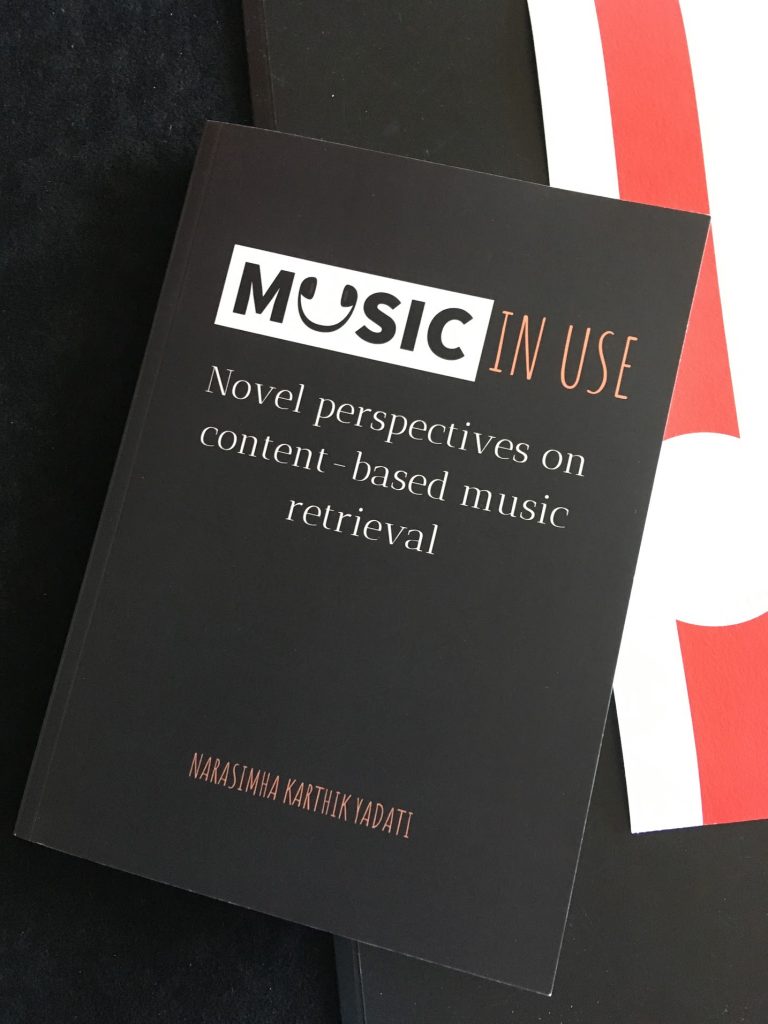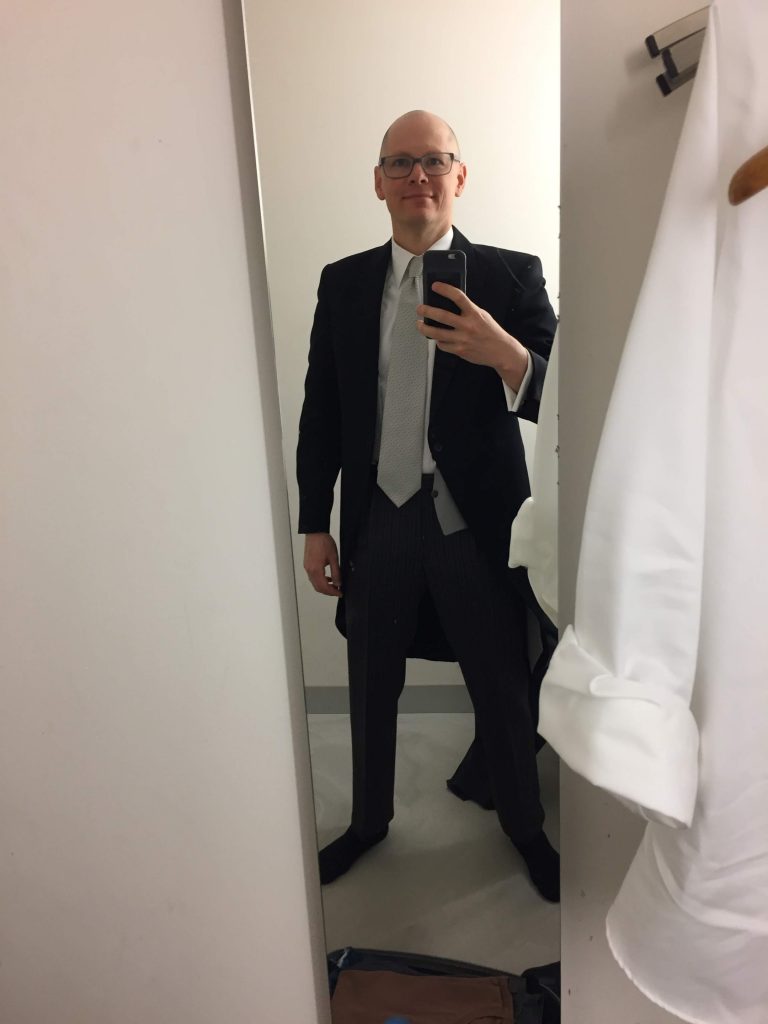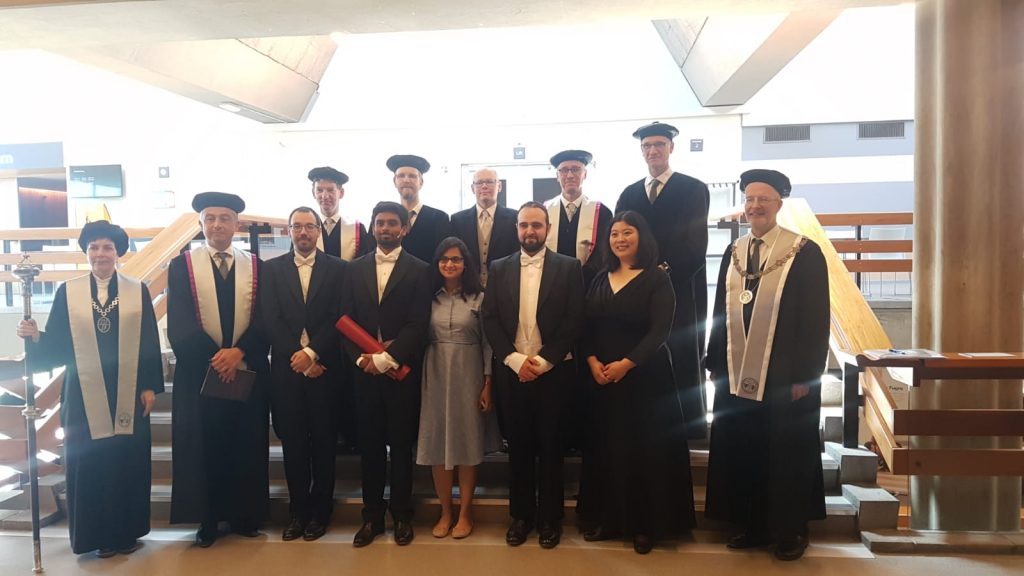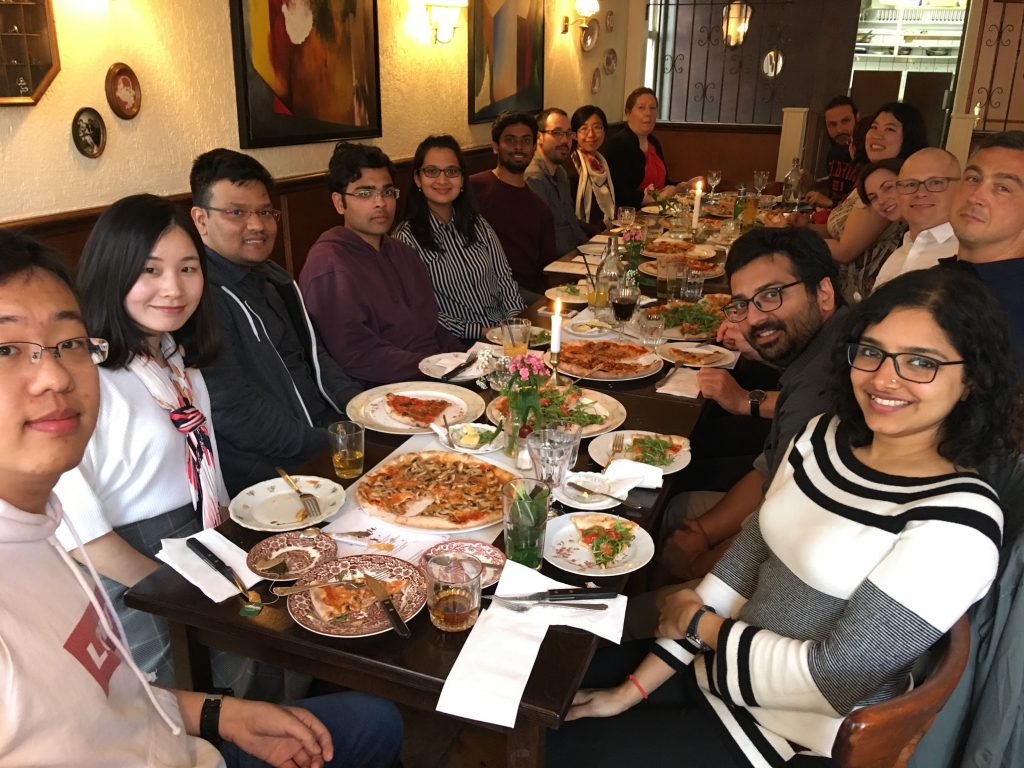I have received a truly amazing education: dedicated public school teachers in Ithaca, NY, great courses and undergraduate research opportunities at Princeton University, freedom to develop my research interests at UC San Diego, and supportive mentors during my post-graduate years. I am a proud product of a strong American education system. However, there are a few things that we could learn from the Dutch when it comes to a Ph.D. thesis defense.

I just spent the last few days serving as an external reviewer on a Ph.D. thesis committee for Karthik Yadati at TU Delft in the Netherlands. His advisor Cynthia Liem invited me to serve on this thesis committee and I agreed almost immediately since I had previously enjoyed reading one of Karthik’s academic papers. What I did not know when I agreed is that I would be required to fly over to the Netherlands to be present at Karthik’s thesis defense. The thought had never occurred to me since my previous experiences serving on such committees (e.g., Cornell, Drexel, National University of Singapore) never required a committee member’s physical presence and often involved a video conferencing setup.
Of course, I wasn’t going to turn down a paid trip to the Netherlands during spring (and neither was my wife Megan who was able to accompany me.) We just missed the tulip season but spending few kidless-days in Delft and Amsterdam after a busy spring semester could not have been better timing. It was a wonderful trip but one of the most interesting aspects was the Ph.D. defense ceremony itself.
The committee had eight members with two internationals reviewers (me and my friend Sebastian Stober from Magdeburg University in Germany), one from a rival Dutch university, three from the home computer science department, one from a different department, and a chairperson representing the university as a whole. The cost both in terms of time and money just to convene the committee alone was already impressive. However, the strict attention to the process is what set it apart from what I had previously experienced when serving on Ph.D. thesis committees.

The first thing I had to do when I arrived in Delft a day early was to visit six-generation old clothing store where I was fitted for a full suit with a specific gray vest and tie, a coat with tails, and black leather shoes. (The black leather shoes that I had brought were not fancy enough since they did not have laces.) This was the standard dress requirement for an associate professor. Unfortunately, I did not get to wear a cap since I was not am a full professor yet.
The next day I went to TU Delft, gave a seminar talk on local music recommendation, and then was rushed over to the main academic conference building (where ISMIR 2019 will be located). I quickly changed into my suit in a private changing room and was taken to a room where I met with the 7 other members of the committee all dress in specific regalia. It was immediately obvious to me that all the member on the committee had read Karthik’s thesis closely (I myself had sent 8 pages of comments.) We discussed the concerns and comments we had about the thesis. We then coordinated which questions we would ask Karthik during the 1-hour defense. We also when over the details of the defense procedure including how to address the candidate (“Waarde Promovenda”), the order of our questions, and when to put on and take off our caps.

I don’t usually get nervous teaching or presenting work at conferences. However, my questions were first and I have to admit that I was a bit overwhelmed when I was given the microphone. (Apparently, having a foreign committee member grossly mispronounce “Waarde Promovenda” is part of the fun.) But I asked my questions and Karthik answered them well. He blazed through the rest of the questions from the other committee members as well. After exactly 1-hour, a marshal entered the room, slammed a large ceremonial staff on the ground, and the defense was over. We then had a quick deliberation in a side room and made the decision to award Karthik a Ph.D. degree.
During the acceptance of his degree, the chairperson asked Karthik to accept the responsibility of being granted a Ph.D. in terms of upholding the scientific method, the quest for deeper truth, and a responsibility to serve the community with future intellectual pursuits. It was a simple and important pledge. Finally, his advisor Cynthia also read a prepared statement about his work and his impact on her research group. It was a circumspect look at his time as a graduate student and her words provided a sense of closure to his studies.
The defense followed with a reception that felt a little like a receiving line at a wedding. There were handshakes, cake, friends and family. We then all went out to an artisanal pizza dinner with wheat beers and red wine. Many of the past and current lab member of the research group told stories and made fun of each other. It was impressive to see such a crew of supportive peers and mentors.

When reflecting on the day, I couldn’t help but think about my own Ph.D. thesis defense experience. As I said at the top, I had excellent teachers and mentors. That said, my defense was mostly just a standard seminar talk with a few questions from my committee members at the end. Nobody flew in or dressed up. Nobody made me pledge anything. We did throw a big “sushi extravaganza” party but my wife and I had to drive cross-country the next day so there was not much time to celebrate.
I’m not one for pomp and circumstance but I am a bit jealous that the Dutch seem to take their academic duties so seriously. The time, energy, and attention to detail from the committee and the student were impressive. I’m glad that Karthik was celebrated for all the hard work that he did while he was a graduate student.
